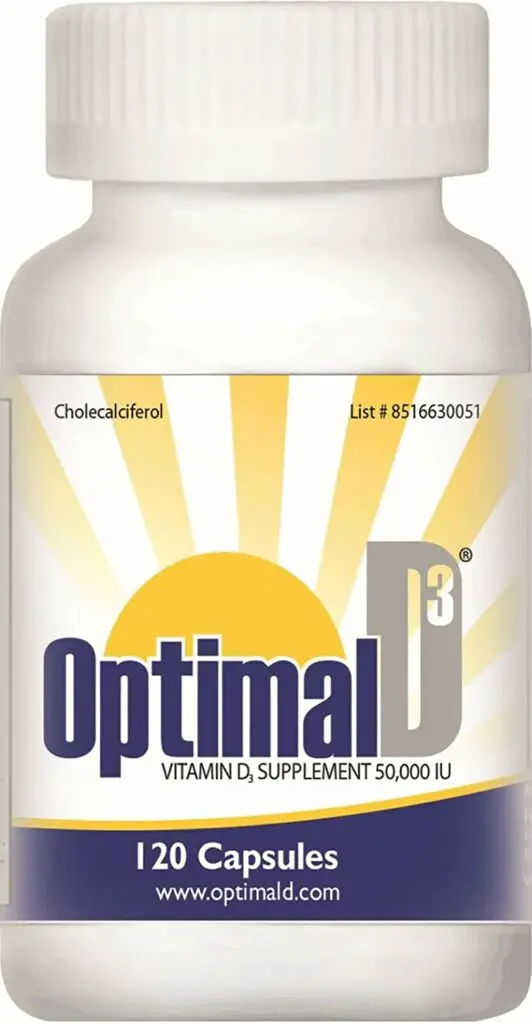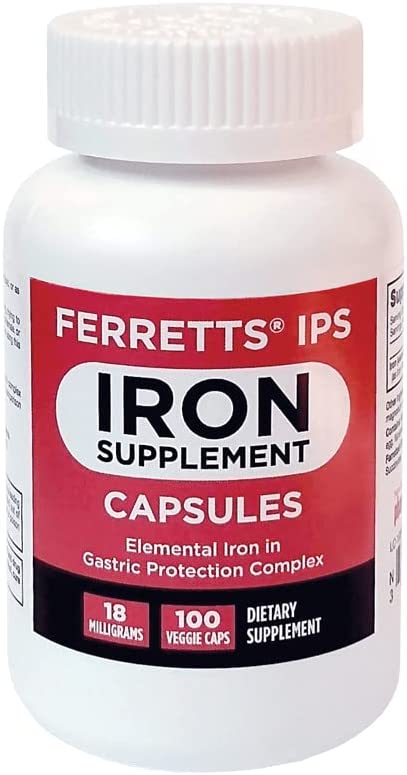It’s easy to think you have everything covered. That all your “ducks are in a row.” And that you’re living the healthiest life possible.
Throughout our day-to-day life, we wake, work, and sleep. It’s the time in between these activities that results in better health and an overall improved life.

What are you eating? What are your supplements? How do you spend your leisure time? These activities and choices shape how your body feels and responds to stressors, including disease and external forces such as stress from work or family.
Today, let’s talk about two widespread deficiencies in essential nutrients that can significantly impact your overall health, mood, and longevity. And we’ll look at some products that can help get levels to where they need to be.
So, read on and learn about two common deficiencies and what you can do about them.
Vitamin D and your body.
The power of the sun. Yes, your body uses UV light to help it produce its own Vitamin D. But what does this vitamin do for you, and how can you ensure you’re getting enough?
Vitamin D is used by the body to help absorb calcium, promoting bone health. If there is a lack of vitamin D, various problems can be encountered.
Studies have linked a lack of vitamin D with an increased risk of several types of cancer. Along with this, lack of vitamin D has been correlated with heart disease, obesity, depression, rickets, severe asthma in children, and cognitive impairment in older adults.
Vitamin D is also a critical nutrient used by your immune system in fighting off infections.
Some of the most recent data suggest that up to 42% of the population is deficient in vitamin D. Researchers believe this can be attributed to individuals not getting enough sunlight.
Think about how much sunlight you get in a day. And it gets even worse in the wintertime, and those that work all day indoors, work night shifts, etc. It’s easy to see why we are deficient.
Some of the more common symptoms of vitamin D deficiency include:
- Fatigue
- Muscle weakness
- Bone pain
If you need more vitamin D intake, there are a few external sources besides being out in the sun more often. Fatty fish such as salmon and mackerel contain a higher amount of the vitamin. And many foods such as milk, cereals, and plant-based drinks are fortified with extra vitamin D.
Some people need extra vitamin D beyond the recommended amount, including people with dark skin and those suffering from certain conditions, including liver disease, cystic fibrosis, celiac disease, and Crohn’s disease.
A simple blood test from your doctor can determine if you need to supplement your vitamin D levels. Now, let’s look at another common deficiency in people that can adversely affect your health.
What proper iron levels can do?
Iron is a mineral that plays several roles in the body. It’s also an essential nutrient, meaning you must acquire it from food.
The primary function of iron is the building block of hemoglobin, a substance in the red blood cells that transports oxygen from the lungs throughout the body. Hemoglobin absorbs over two-thirds of your body’s iron supply.

About 25% of the world’s population is deficient in iron. That means about one out of every four people you meet could need to increase their iron intake. Here are some of the most common signs of iron deficiency.
Fatigue – Feelings of fatigue are among the most cited symptoms of iron deficiency. The cause of fatigue is the insufficient amount of blood oxygen available to the body, caused by a shortage of hemoglobin. When muscles and tissues are deprived of blood oxygen, they become fatigued much faster. Additionally, your heart must try to compensate for the low hemoglobin levels by pumping harder, which can cause you to feel more tired.
Brain Fog – Brain fog is commonly experienced as a complementary symptom, along with fatigue, in people with iron deficiency. It is characterized by difficulty concentrating, poor memory, confusion, and disorientation. The brain requires more energy than any other body part to operate effectively. It stands to reason, then, that deficiency in iron levels – and the shortage of blood oxygen – can readily cause a decline.
Paleness – Hemoglobin is what gives skin its reddish color. If your body’s hemoglobin count is low, your skin may appear paler than usual. Pale skin may also affect specific areas, including the face, gums, and nails.
Dizziness and headaches – Iron deficiency may trigger headaches due to decreased blood oxygen reaching the brain. Low oxygen levels cause blood vessels to swell, creating pressure in and around the skull that can trigger headaches or dizziness.
Heart palpitations – The body will signal the heart when it is low on oxygen. The heart responds to these signals by pumping harder to distribute more oxygen. Not only does this make us feel more tired and weak, but we may also experience an irregular heartbeat – a condition referred to as heart palpitations.
Cold hands and feet – The body requires consistent blood flow to warm the extremities. An iron deficiency interferes with the mechanism that warms hands and feet by not delivering sufficient oxygen. People who feel the cold more easily may feel this symptom of iron deficiency to a higher degree than others.
Weakness – This symptom usually pairs with fatigue. Muscles, both large and small, require consistent blood oxygen for energy. When oxygen-dependent muscles aren’t supplied with enough blood, they can quickly tire and weaken. Weakness often appears as a total body symptom, meaning it can be felt from head to toe.
As you can see, the lack of this critical nutrient can cause many problems. Iron is so vital that a deficiency can lead to cravings to eat ice, clay, dirt, chalk, or paper. A deficiency in the body may also cause feelings of anxiety.
The recommended daily intake of iron is 18mg per day. Let’s look at some extremely high-iron foods, and maybe you can incorporate them into your diet.
Shellfish: Clams, mussels, and oysters are among the best sources you’ll find. Shellfish contains many other nutrients and can boost good cholesterol as well. One 3.5-ounce portion of clams contains 28 mg of iron or 155% of RDI.
Spinach: This is among the most abundant sources of nutrients, including iron. Spinach contains about 20% of your needed iron daily.
Legumes: Legumes such as beans, chickpeas, lentils, peas, and soybeans are excellent sources of iron. One cup of lentils contains about 7 mg or 40% of your daily needs.
Pumpkin seeds: Just 1 ounce contains over 20% of your daily iron needs.
So, there are food sources high in iron that help raise your levels if you feel you may be low on iron.
While supplementation may be necessary to increase your vitamin D or iron levels, knowing what to take or how much is challenging.
That’s why you should turn to a trusted provider of quality supplements for your needs. One such provider is Pharmics Inc.
Since 1970 Pharmics has provided quality supplements with superior absorption and ease on your digestive system. And here are two great products meant to meet the needs of iron and vitamin D deficiency.
Optimal D3
Get complete vitamin D dosage with just one dose per week.
Provides 1250 mcg of D3 in a convenient veggie capsule.
The capsule’s contents are tasteless and can easily be added to smoothies, yogurt, etc.
This product will never contain:
- Soy
- Yeast
- Dairy
- Gluten
- Artificial color or flavors
- Preservatives
Making sure your vitamin D levels are optimal has never been easier with the once-a-week dosage.
And if you find your iron levels could be low Pharmics has a product that is easy on your digestive system.
Ferretts IPS
A major complaint with those that need iron supplements is that traditional treatments are hard on your digestive tract. If this has been your experience in the past Pharmics could have just the formula for you.
This vegetarian tablet contains Iron Protein Succinylate (IPS), a complex of iron that is specially formulated to reduce irritation in the stomach when compared to other iron supplements.
Ferretts IPS is safe, gentle, non-constipating, and delivers superior absorption.
It’s so gentle that 93.7% of patients reported NO side effects – this is huge in the world of iron supplementation.
It is also free of:
- Wheat
- Gluten
- Soybeans
- Eggs
- Fish/shellfish
- Peanuts/tree nuts
This is a genuinely effective iron supplementation because you can take it daily without discomfort, as Jody says in this beautiful review below.
I really like the Ferretts IPS capsules. my iron levels are finally going up and I do not have any stomach issues with this product, thanks.
If you need great supplements that are easy on you and easy to take, consider Pharmics. They’ve produced quality for over 50 years and don’t plan to stop anytime soon.
* In partnership with our friends at Pharmics* Photo courtesy of Pharmics
* These statements have not been evaluated by the Food and Drug Administration. These products are not intended to diagnose, treat, cure or prevent any disease.
* The information available on ewellnessmag.com, including text, graphics, and other materials is for informational purposes only. Reliance on any information in ewellnessmag.com is at the user’s own risk. Sponsored product placement may appear in the article. The visitor of this website acknowledges that the information available on or through ewellnessmag.com is not and is not intended to be a substitute for professional medical advice. Copyright © 2023 Brawo Press, Inc. All rights reserved.






